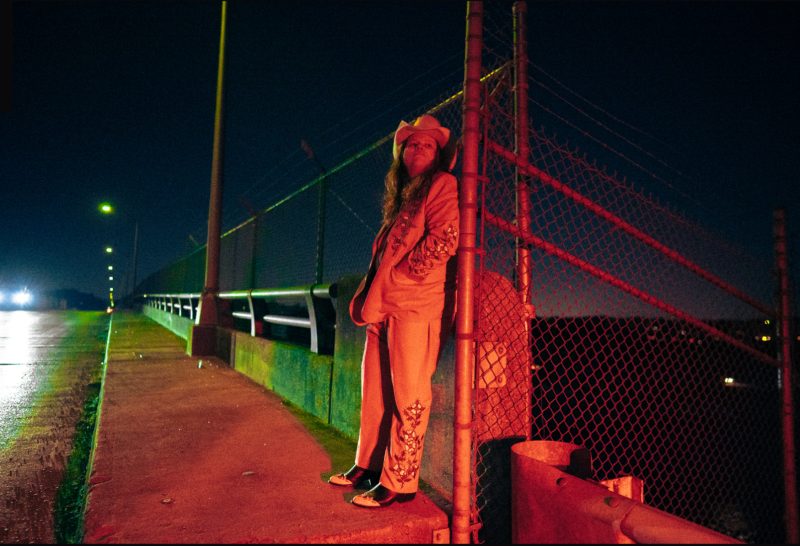Mood Swings is a haunting, soul-deep record that hits more personal than any record currently out there. Marcus King doesn’t pull back addressing difficult subjects like depression, heartbreak, mental health issues, toxic love, etc. Inspired by King’s own soul searching journey, the album instead takes on a meditative approaching, transforming those sharp and difficult feelings into a collective healing experience. With haunting, almost minimalistic backdrop, King’s smoky, soaring vocal takes the center stage, chronicling his mental, emotional journey.
Instead of caring too much about the reception of this album, King opens himself up creatively and emotionally, being the most vulnerable he has ever been. Mood Swings was born during a particularly dark period of King’s life. Between touring and promotion cycles of his last two albums, King caught himself spiraling down a dangerous path as his mentality begins to deteriorate.
“I was either abusing the wrong substances, in between mood stabilizing meds and anti-psychotics, self-medication on top of that, along with a footlocker full of repressed childhood trauma all being taken out on my relationship at the time,” said King. He was the most vulnerable, battling with the voices in his head. King was at one point considering ending it all, but music and those he cares about pulled him back. Instead, he channeled all the raw, hard-to-face emotions into the record, Mood Swings.
Musically, Mood Swings is unconventional in terms of form and its approach to sound and genres. King’s bluesy, soulful voice confronts a jazzy backdrop, adding peace and space to the palette while lyrically being foremost vulnerable and confrontational. Mood Swings can be a difficult record to listen to. Some might even say that it needs a trigger warning for the listeners to mentally prepare before breaking into the songs, but no matter what emotional journey Mood Swings might inspire you to embark, trust that King will pull you back and transform you to a new calmness at the end of the sonic expansion.
Written by Katrina Yang

Press Q&A with Marcus King
Q: Looking back at the now finished album, what has the process taught you?
Marcus King: I had to break some bad habits as a writer as far as writing for the listeners instead of writing for myself. It’s gratifying this album has been received, the attention it has because this is the first time I’ve disregarded entirely what the audience may think about the record, just do it because I needed to do it.
Q: Are there any artists on the Mood Swings curated playlist that offered an inspiration to the album?
King: The whole album really. It’s a release of an album, a release of emotions. Music is a very powerful tool to help you release whatever emotions you have going on whether you realize it or not. I just curated it with that in mind.
Q: How did the collaborative experience with Rick Rubin influenced the creative direction and the overall aesthetic of Mood Swings?
King: Rick has a much more step-back, philosophical approach to producing the record. He really motivated me to dig deeper in myself than I’ve been before, starting to combine meditation with writing and just being open to the idea of being vulnerable, letting people see me vulnerable.
Q: What has been the one thing you heard from someone that keeps you going?
King: I’ve always been honest with my friends and family. This has never been something that I keep as a secret, but I also don’t use it as an excuse to be an overly moody. Being a creative and struggling with repressed trauma that can really fuck with your mood. It can be really challenging, especially for your friends and family. For me, I look for support from my wife and validation that my feelings are real, and I can acknowledge them and set them aside and work through them. Just validating that your feelings are real is important. It’s especially important when I’m on the road. When I go from town and town, I seek acceptance from crowds and people every night. That’s definitely something to address in therapy like if you’re just craving people’s acceptance and you do that from night to night. On the surface, it’s probably not the healthiest behavior, but I love doing it.
Q: Going back to your childhood, what is a story from your childhood that shines a light on your album?
King: I’ve spent a lot of time alone. At the time I didn’t realize how much time i was spending alone, when I started to make friends, it was very special to me, and it was hard for me to make friends. The best friend I ever made, she actually passed away in a car accident when we were 13. Before that, I had always just played the guitar. After she passed away, I just felt this real emptiness and I realized how alone I’ve been. I felt alone again. Sometimes, it takes stepping out of something to realize what it was. To feel that alone again, that was when I started writing.
Q: Have you ever experienced creative block where making music was difficult and how did you deal with that?
King: When I was doing Young Blood, I was self medicating. I’ve just gone through a big breakup, a very codependent relationship, and she left. I was really alone and emotionally detached from everything creative and just felt really numb, which was a bad feeling because I’ve never gotten to the point of numbness where I don’t want to creative, so some music on that album, I felt that I didn’t phone it in or I wasn’t completely mentally present. Some songs on the album felt like I didn’t put my energy in it.
CLICK HERE TO LEARN MORE ABOUT MARCUS KING
FOLLOW MARCUS KING










